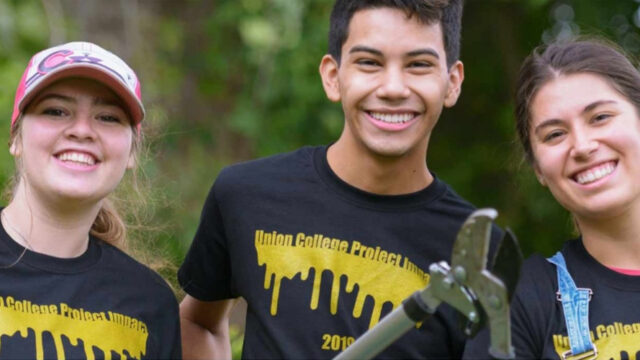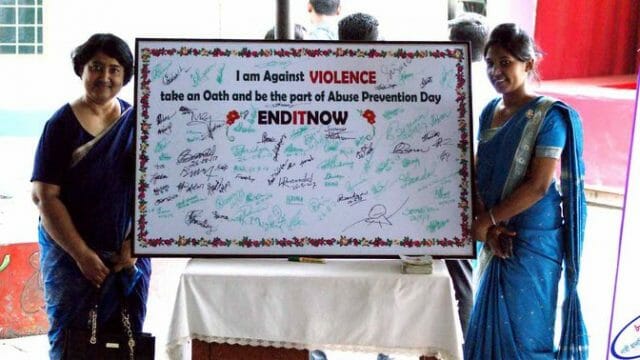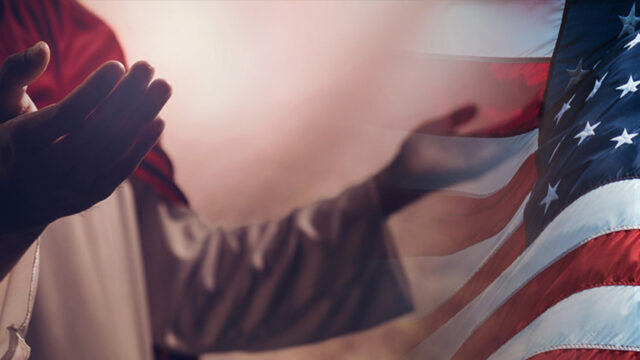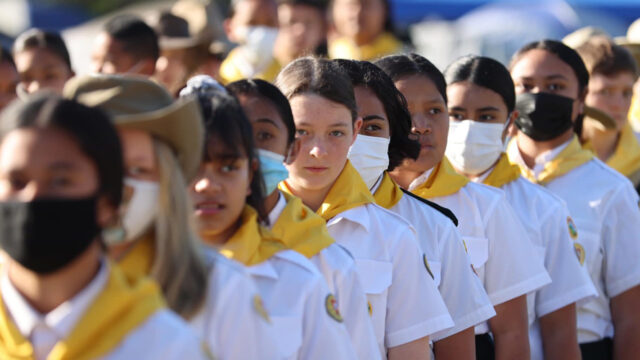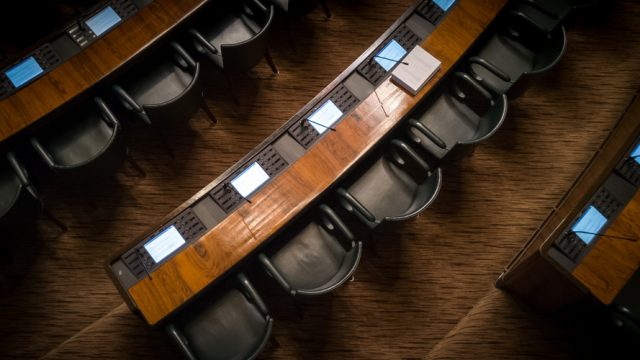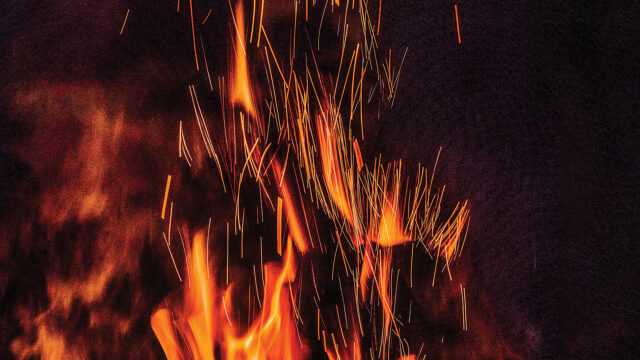When violence and trauma enter our lives
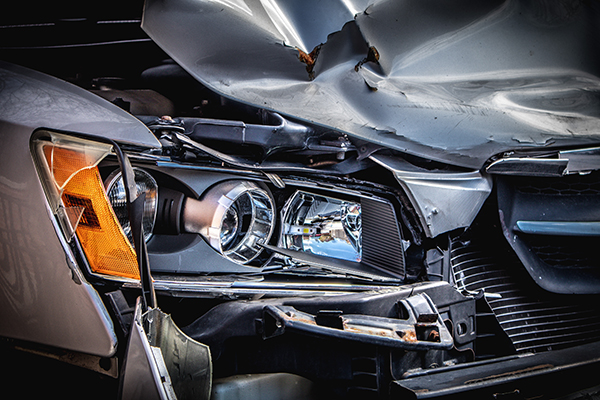
“Even though I walk through the valley of the shadow of death, I will fear no evil, for you are with me; your rod and your staff, they comfort me” (Ps. 23:4, ESV).1
In the space of two hours, my wife, Lanell, and I saw death’s shadow pass before us.
My moment happened at 4:50 p.m., February 17, in Chattanooga, Tennessee. I was hitting golf balls on the driving range at Choo Choo Golf Academy when automatic gunfire broke out across the street at a car wash. For a moment I froze, then I dove into the mud behind the low concrete platform under the range’s golf mats.
Glancing above the mats I saw a gunman calmly walking down the road firing round after round toward a black car parked in the car wash parking lot. It occurred to me that if anyone was firing back, I was in their direct line of fire; so I ducked again as two getaway cars sped away.
Surveillance video revealed that the assailants had waited in the driving range parking lot for their victims to go through the car wash before driving across the road to fire more than 25 rounds, leaving one victim with life-threatening injuries and a second victim with leg wounds.
Police, fire department, and paramedic response was immediate and massive. After I was allowed to exit the range by driving around the shell casings littering the road less than 100 feet from where I had been lying in the mud, I went home, changed my muddy clothes, and was watching the news when Lanell arrived home trembling.
“I’ve just wrecked my car,” she told me.
In the dark, Lanell had seen an approaching car swerve toward her, then jerk back. The deer it avoided crashed into Lanell’s front left fender. Afraid to stop for fear of getting hit by another car on the narrow country road and because she couldn’t deal with a wounded deer, Lanell had driven straight home.
The crushed fender and the tuft of hair in the crack between the fender and front bumper hinted at what might have happened if the deer had jumped higher and crashed through the windshield—or if the other car had not swerved back into its lane. As Lanell and I hugged, we both felt thankful to be alive.
Trying to Make Sense
Death’s shadow can flash before us so fast that we don’t have time to be afraid. I felt no fear as gunfire shattered the afternoon, but I felt drained the next day, and I continue to think about what happened to Lanell and to me. What I keep processing includes the movie-like memory of one of the gunmen calmly, almost professionally, walking along the road firing a weapon with the intent to kill. I struggle with evil dressed like everyone else, the scene so normal except for the gunshots. Were the shots fired in anger, to get revenge, to enforce one’s power, to gain a financial advantage? Although one suspect has been arrested, news reports indicate no clues as to the assailants’ motives.
What I’m realizing is that witnesses to violence are also victims. I now view everyone I see suspiciously. Sudden sounds startle me. I’ve been changed in ways that only time will reveal.
In telling a police officer about the shooting, he asked, “Do you carry a gun?” “No,” I replied. But after my experience I have a better understanding of and sympathy for those who do choose to carry. For several seconds I had a clear view of one of the gunman’s back. If I had only carried a weapon. . . . The desire to stop an attacker from taking another person’s life is better understood once one has been in such a situation.
What I also now realize is that only someone with training and experience can make the split-second judgments necessary before firing a weapon. Was the gunman one of the hit men or a good guy firing back? Other patrons crowded the car wash parking lot. Who else might be hit? And what about the other gunmen in the getaway cars? Any fire in their direction could bring fire back toward the driving range. Few people have the ability to process so much information in a split second.
My memory has proved fragmentary and selective. Too much happened too quickly. Only as witnesses compared experiences could we piece together what had happened.
Lanell called me two minutes after the shooting started, while I was facedown in the mud, and I answered to stop the phone from ringing. While I talked with her for six minutes until we could hear sirens approaching, I had no memory of her call until she showed me her cell phone record. Psychologists call this “the fog of war,” an uncertainty in situational awareness experienced by participants in military operations, which has to be experienced to be fully understood. My decision not to carry or own firearms—based on my reading of Scripture—is unchanged, but I am more sympathetic to those who come to a different decision.
Processing Tragedy
How quickly life resumes after tragedy now seems, well, unseemly. Our exit was blocked by crime scene evidence and emergency vehicles, so some of us finally decided to finish hitting the buckets of golf balls we had left on the range. Playing while men were still being treated for their wounds a few feet away felt disrespectful but also therapeutic. How else to burn off our adrenaline?
Others became increasingly agitated over their inability to leave. Again, their stress seemed disrespectful to the tragedy, but I did not know what pressures they were under to get back to unsupervised children or sick relatives or essential work. Our frenetic lifestyle stops for nothing, not even death. Forty-eight hours later I returned to find the car wash and driving range crowded with people; the only reminder of the shooting was the plywood covering of the two shattered windows behind where the victims’ car had been parked.
Repeatedly, people have asked me about the race of both the assailants and victims. Why? Would the questioners, myself included, feel safer, relieved, or perhaps even somewhat superior if the actors in this drama were of another race. Since God “has made from one blood” (Acts 17:26, NKJV) 2 all of us, we all are part of God’s humanity. It seems clear that our prejudice and our society’s systemic racism have provided fertile soil for crime.
As a firm believer that God gives each of us free will, I am not in any way excusing individual responsibility for one’s actions; but the prevalence of gun violence in our society has connections to the stratified society we live in, which makes it more difficult for some than for others to escape poverty and criminal influences. If every child had equal opportunities for education, for employment, and for family, health, and spiritual support, would there be as much crime?
Would we do more about these issues if we didn’t think that such crimes usually happen in “other” neighborhoods? We accept violence until it surfaces between the nearby car wash and the golf range. More than ever, I’m acutely aware that my comfortable life is made easier by where I live, by my age, gender, skin color, economic status, accent, dress, and many other markers our culture uses to include or exclude.
While I hope that I never witness another shooting, my heart grieves for those traumatized by continual exposure to violence and by societal neglect of their plight. Would that every victim of and witness to violence could experience the quick and compassionate response I saw from area police, deputies, paramedics, and firefighters. Lanell and I are thankful for their dedication and proud that we can support their service in our community and every community through our taxes. They don’t get paid enough for what they do.
Most of all I’m thankful to God, who fulfilled to Lanell and me the promise we claim in our prayer every morning before we leave home:
“The angel of the Lord encamps around those who fear him, and delivers them” (Ps. 34:7, ESV).
1 Scripture quotations marked ESV are from The Holy Bible, English Standard Version, copyright © 2001 by Crossway Bibles, a division of Good News Publishers. Used by permission. All rights reserved.
2 Texts credited to NKJV are from the New King James Version. Copyright © 1979, 1980, 1982 by Thomas Nelson, Inc. Used by permission. All rights reserved.


